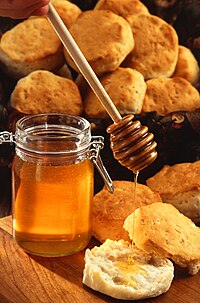
Environmental sustainability challenges of China's edible vegetable oil industry: From farm to factory
Sign Up to like & getrecommendations! Published in 2021 at "Resources, Conservation and Recycling"
DOI: 10.1016/j.resconrec.2021.105606
Abstract: Abstract With the increasing consumer demand and only 31% of the self-sufficiency rate, how to mitigate the supply safety of edible vegetable oil in an environmentally sustainable manner is a tremendous challenge for China. This… read more here.
Keywords: china edible; vegetable oil; edible vegetable; oil ... See more keywords

Monitoring of aflatoxins in edible vegetable oils consumed in Western Iran in Iran: a risk assessment study
Sign Up to like & getrecommendations! Published in 2021 at "International Journal of Environmental Analytical Chemistry"
DOI: 10.1080/03067319.2021.1938023
Abstract: Edible vegetable oils as an important component of our daily diet are widely consumed around the world. In this research, the concentrations of aflatoxins, including B1 (AFB1), B2 (AFB2), G1 (AFG1)... read more here.
Keywords: aflatoxins edible; monitoring aflatoxins; oils consumed; iran ... See more keywords

Qualitative and Quantitative Analysis of Six Fatty Acid Amides in 11 Edible Vegetable Oils Using Liquid Chromatography–Mass Spectrometry
Sign Up to like & getrecommendations! Published in 2022 at "Frontiers in Nutrition"
DOI: 10.3389/fnut.2022.857858
Abstract: Fatty acid amides (FAAs) are endogenous lipid molecules that exhibit various physiological activities. FAAs are usually present at nanomolar levels in biological samples. In this study, a method for the qualitative and quantitative determination of… read more here.
Keywords: oil; qualitative quantitative; vegetable oils; edible vegetable ... See more keywords

Rapid Identification of Adulteration in Edible Vegetable Oils Based on Low-Field Nuclear Magnetic Resonance Relaxation Fingerprints
Sign Up to like & getrecommendations! Published in 2021 at "Foods"
DOI: 10.3390/foods10123068
Abstract: Most current approaches applied for the essential identification of adulteration in edible vegetable oils are of limited practical benefit because they require long analysis times, professional training, and costly instrumentation. The present work addresses this… read more here.
Keywords: magnetic resonance; edible vegetable; adulteration; vegetable oils ... See more keywords

Multi-Residue Analysis of Chemical Additives in Edible Vegetable Oils Using QuEChERS Extraction Method Followed by Supercritical Fluid Chromatography
Sign Up to like & getrecommendations! Published in 2022 at "Molecules"
DOI: 10.3390/molecules27051681
Abstract: Since the quality and safety of food highly depend on its preservation and protection, the use of food packaging materials increases the risk of chemical contamination of the packaged food by migration. Herein, we focused… read more here.
Keywords: chemical additives; vegetable oils; edible vegetable; method ... See more keywords

Co-Occurrence of Beauvericin and Enniatins in Edible Vegetable Oil Samples, China
Sign Up to like & getrecommendations! Published in 2019 at "Toxins"
DOI: 10.3390/toxins11020100
Abstract: A total of 470 edible vegetable oil samples including peanut, soybean, rapeseed, sesame seed, corn, blend, and others collected from eight provinces of China were analyzed for the concentrations of beauvericin (BEA), enniatin A (ENA),… read more here.
Keywords: bea enns; oil samples; vegetable oil; edible vegetable ... See more keywords

Development of a Hydrazine-Based Solid-Phase Extraction and Clean-Up Method for Highly Selective Quantification of Zearalenone in Edible Vegetable Oils by HPLC-FLD
Sign Up to like & getrecommendations! Published in 2022 at "Toxins"
DOI: 10.3390/toxins14080549
Abstract: Rapid, cost-efficient, and eco-friendly methods are desired today for routine analysis of the Fusarium mycotoxin zearalenone (ZEN) in edible vegetable oils. Liquid chromatography with fluorescence detection (HPLC-FLD) is commonly used to reliably control the specified… read more here.
Keywords: spe; edible vegetable; vegetable oils; hydrazine ... See more keywords